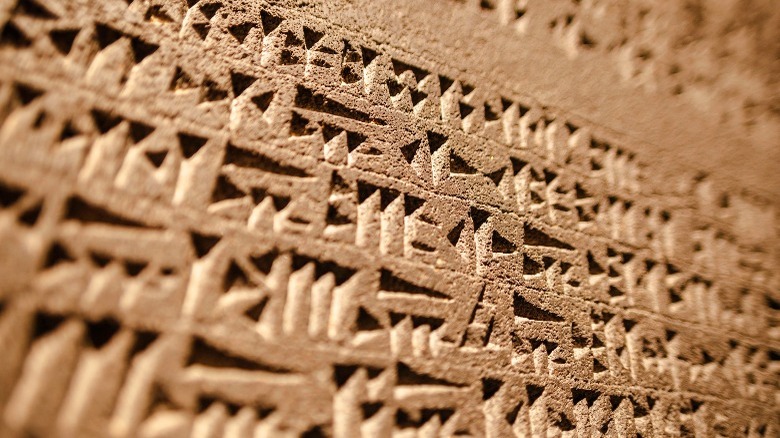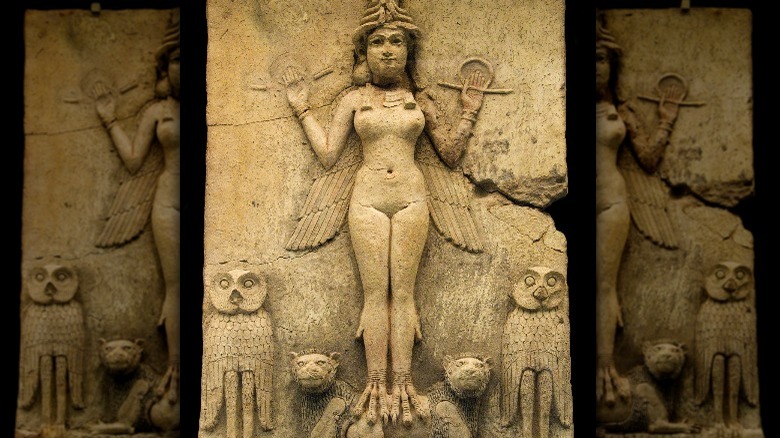The First Named Author In History Was A Woman
The Sumerians are often credited with creating the earliest recorded written word. Our ancestors used cave paintings as an early form of communication 30,000 years ago before the Sumerians began producing "writing" on clay tablets 25,000 years later. Around 2000 B.C., writing advanced to the point where it could be used to communicate emotions and ideas. Over the following centuries, writing transformed into one of the primary ways we communicate and express ourselves (per Psychology Today).
With the rise of the written word came the eventual production of documents, poetry, letters, magazines, and books. The pursuit of writing things that people want to read has given us some of history's greatest authors. We all know the works of Ernest Hemingway, Oscar Wilde, Jane Austen, and William Shakespeare, but you likely have never heard of history's first-named author, as she came thousands of years before the famous names we know today.
Ancient Priestess and Author
In 2285 B.C., a baby girl named Enheduanna was born (per World History Encyclopedia). She was possibly the daughter of a great Sumerian ruler named Sargon of Akkad and the translation of her name reportedly pays homage in some way to the Akkadian sky deities. Her early life is mostly shrouded in mystery until she was appointed priestess of the temple of Nanna (per ThoughtCo).
Enheduanna is also believed to have had some additional civil authority attached to her name. She used her elevated status to unite the Sumerian city-states her father had conquered. Enheduanna did this by combining the worship of Akkadian goddesses with a Sumerian goddess known as Inanna (per ThoughtCo). Though this act may have bolstered her influence, her priestess status was not what she became most well-known for. In addition to being a religious figure, Enheduanna was also a talented writer.
Enheduanna's Written Works
Enheduanna linked the Sumerian goddess Inanna to the Akkadian goddess Ishtar through her writings of religious hymns and poems (per BBC). She reportedly wrote hymns for 42 temples in Mesopotamia and they were focused on the worship of their patron goddess. Scribes in these temples then copied her writings for centuries after her death.
Enheduanna was honored and revered during her lifetime as a writer and poet (per World History Encyclopedia). She is credited with merging the religious beliefs of Mesopotamia and in turn combined other aspects of the ancient empire as well. Her work also laid a foundation for writers and poets like herself for hundreds of years after her death. Though she was heavily influential in ancient times, most of her legacy remained lost to history until 1927 (per BBC), when objects with her name on them were unearthed by archeologist Sir Leonard Woolley, which revealed history's first named author to the world.


